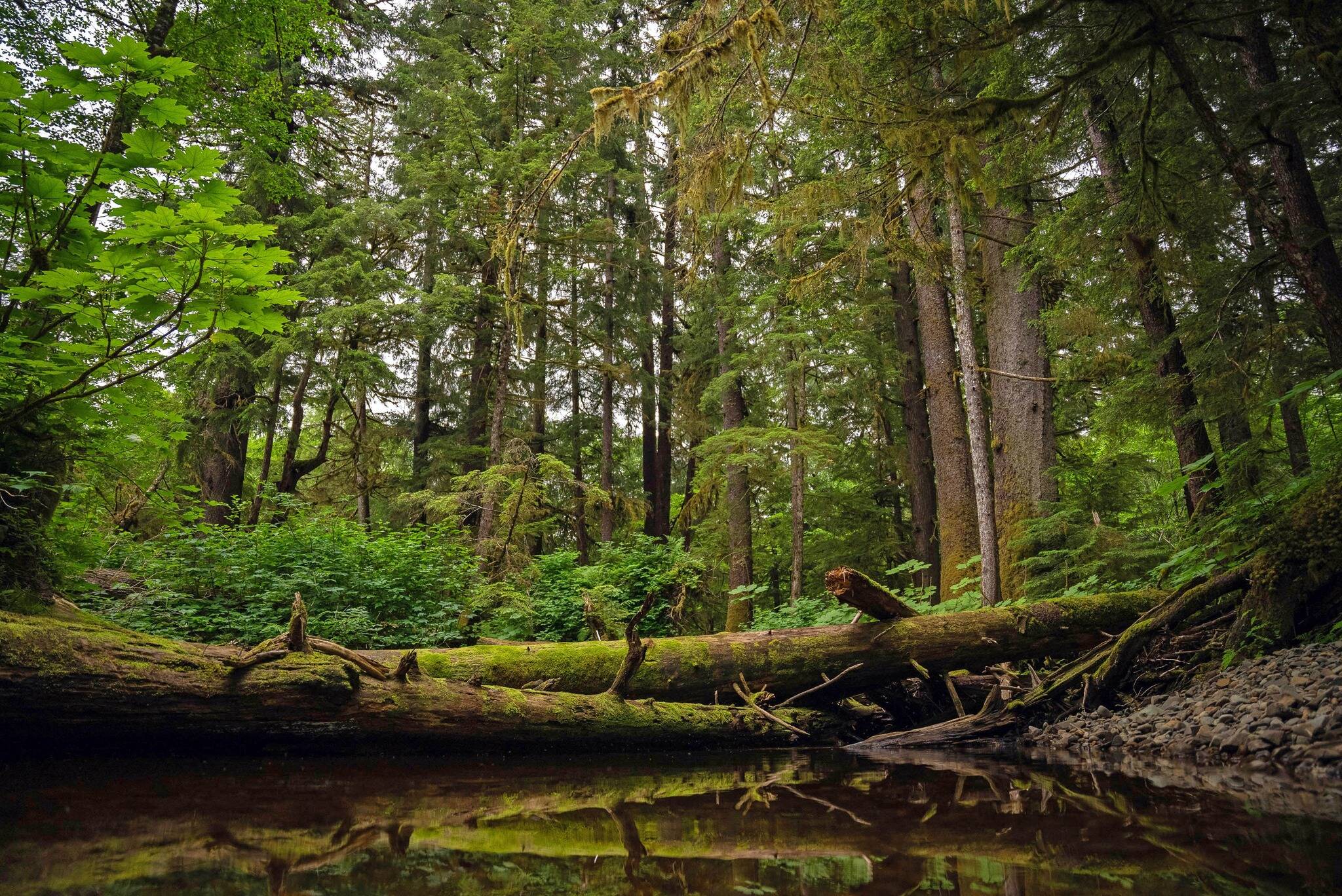A legal challenge by the state to the Biden administration’s reinstatement of the so-called Roadless Rule, banning logging and road-building on more than nine million acres in the Tongass National Forest, was filed Friday in federal court.
The complaint continues more than two decades of battles over the Roadless Rule protections initially enacted in 2001 under a policy initiated by former President Bill Clinton. In recent years former President Donald Trump nullified the policy and opened the forest area to development, with the Biden administration reimposing the policy in January of this year.
[Biden administration reinstates Tongass Roadless Rule]
“The State of Alaska will continue this long-running fight to unburden the Tongass National Forest from the constraints of the Roadless Rule and to protect the economic and socioeconomic development of Southeast Alaska,” said Alaska Attorney General Treg Taylor, who filed the complaint in U.S. District Court, in a prepared statement Friday. “The Tongass National Forest has robust environmental protections in place, and the Roadless Rule is both unnecessary and continues to cripple the future of Alaskan communities.”
The press office for the U.S. Department of Agriculture, the parent agency of the U.S. Forest Service, responded to an inquiry by the Empire about the state’s challenge with an email stating “as a matter of policy, USDA does not comment on pending litigation.”
The Forest Service issued a press release in January when the Roadless Rule was reinstituted stating the action “restores longstanding roadless protections to 9.37 million acres of roadless areas that support the ecological, economic and cultural values of Southeastern Alaska.” As a legal matter, the release noted “the forest is within the traditional homelands of the Tlingit, Haida and Tsimshian peoples,” and the decision “reflects the USDA’s and Forest Service’s commitment to strengthening nation-to-nation relationships.”
“This final rule is based on the multiple ecological, social, cultural and economic values supported by roadless areas on the Tongass and follows months of engagement with tribes, rural communities and partners,” the release added. “The Forest Service received about 112,000 comment documents from individuals and organizations during the public comment period between November 2021 and January 2022 — the majority of which were in favor of restoring roadless protections. The agency reviewed, analyzed and applied this input, alongside the input received during the 2020 rulemaking, to inform USDA’s final decision. USDA also consulted with Southeast Alaska Tribal Nations.”
The state’s 40-page complaint asserts the Roadless Rule is “a national, one-size-fits-all regulation that unlawfully limits opportunities for Alaskans who live and work in Southeast Alaska, given the enormous footprint of the forest across the region,” according to the attorney general’s office.
“Reapplying the 2001 Roadless Rule to the Tongass violates unique Alaska and Tongass-specific statutory provisions of the Alaska National Interest Lands Conservation Act and the Tongass Timber Reform Act based on a flawed and biased decision-making process,” a summary of the complaint notes.
• Contact Mark Sabbatini at mark.sabbatini@juneauempire.com or (907) 957-2306.

